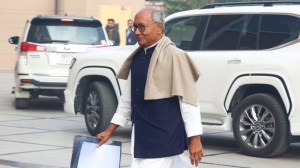Hot air
The Gas Exporting Countries Forum, or GECF, was formed in 2001, and has met annually since, largely under the radar.

The Gas Exporting Countries Forum, or GECF, was formed in 2001, and has met annually since, largely under the radar. This year8217;s meeting concluded Tuesday at Doha, and engendered an unprecedented amount of coverage, and concern. The apparent cause: the Iranian oil minister cheerfully announced that a 8220;consensus8221; existed to form a gas-OPEC. But after last year8217;s meeting, his Algerian equivalent had said much the same thing. This January, Iran8217;s Ayatollah Khamenei had suggested a cartel to Putin, who replied, 8220;good idea8221;; but Putin and Nursultan Nazarbaev of Kazakhstan had agreed so in 2002. The real reason was that this time the world hasn8217;t recovered from a period of unexpectedly high oil prices; and the prospect of gas becoming subject to the same sort of pressures that affect oil is understandably scary.
It is not going to happen the way we fear, though. There are traditionally massive structural differences between oil and gas. Oil is mobile, fungible, determined by short-term contracts; gas runs through immobile pipelines, ruled by long-term agreements between sender and receiver. Gas cartels, the logic implies, won8217;t have quite the same reactive price-setting power. What8217;s more, the countries pushing for it are doing so because of specific internal pressures. Iran, for example, desperately needs funds to update its abysmal gas infrastructure; vast reserves notwithstanding, it actually imports from its northern neighbour, Turkmenistan. And it causes trouble: the past winter saw Khamenei cut his president, Mahmoud Ahmadinejad, down to size in a dispute over domestic gas prices caused by increasing Turkmen prices. Moscow8217;s worried that as oil prices decline, Putin8217;s method of rule 8212; buying popularity with petrodollars 8212; will stop working. But he needs freedom to use his gas prices to pressure his neighbours. What Iran and Russia want out of a cartel will be different things.
So no Gas-OPEC in our immediate future. Still, two causes for worry. One: as the industry starts focusing on transport through LNG containers and not pipelines, some of the illiquidity of the market goes away, and a cartel looks more attractive. Two: even without open price-setting, collusion is bound to increase. Participating countries have agreed to share enormous amounts of information about potential buyers, and their own future business plans. All this is, of course, anti-competition and unwelcome. India, as a large consumer of gas, needs to be prepared to use its foreign policy as an instrument to keep the gas market liquid and free.
- 01
- 02
- 03
- 04
- 05































